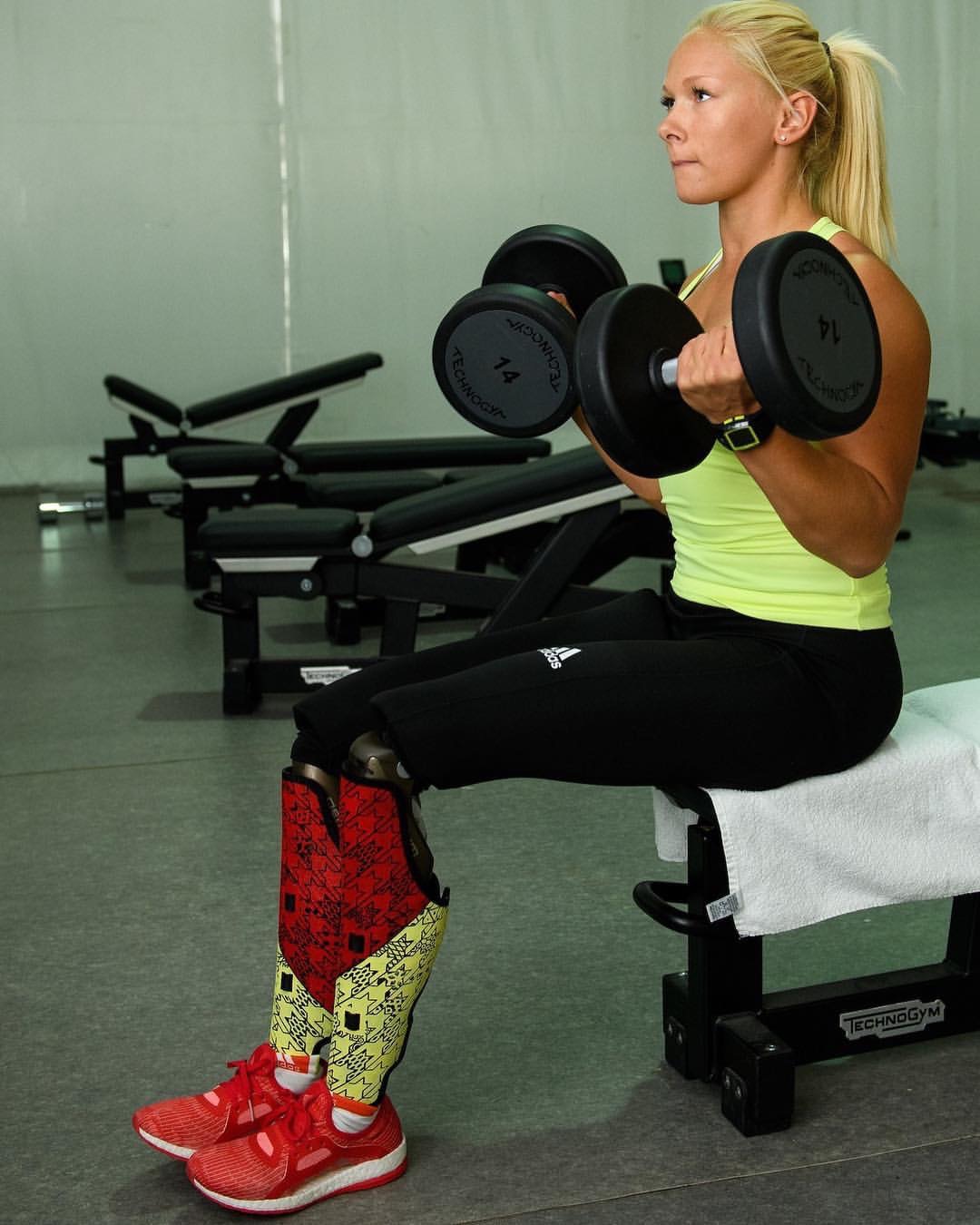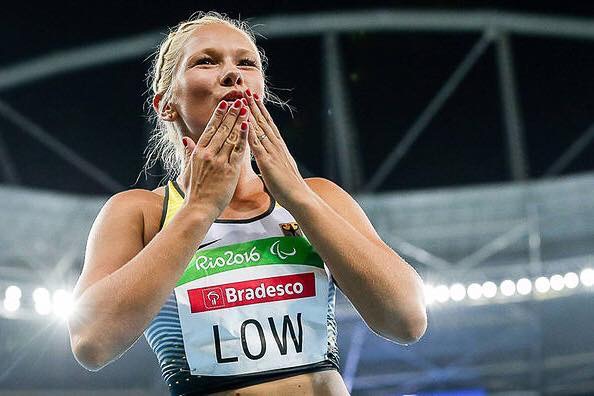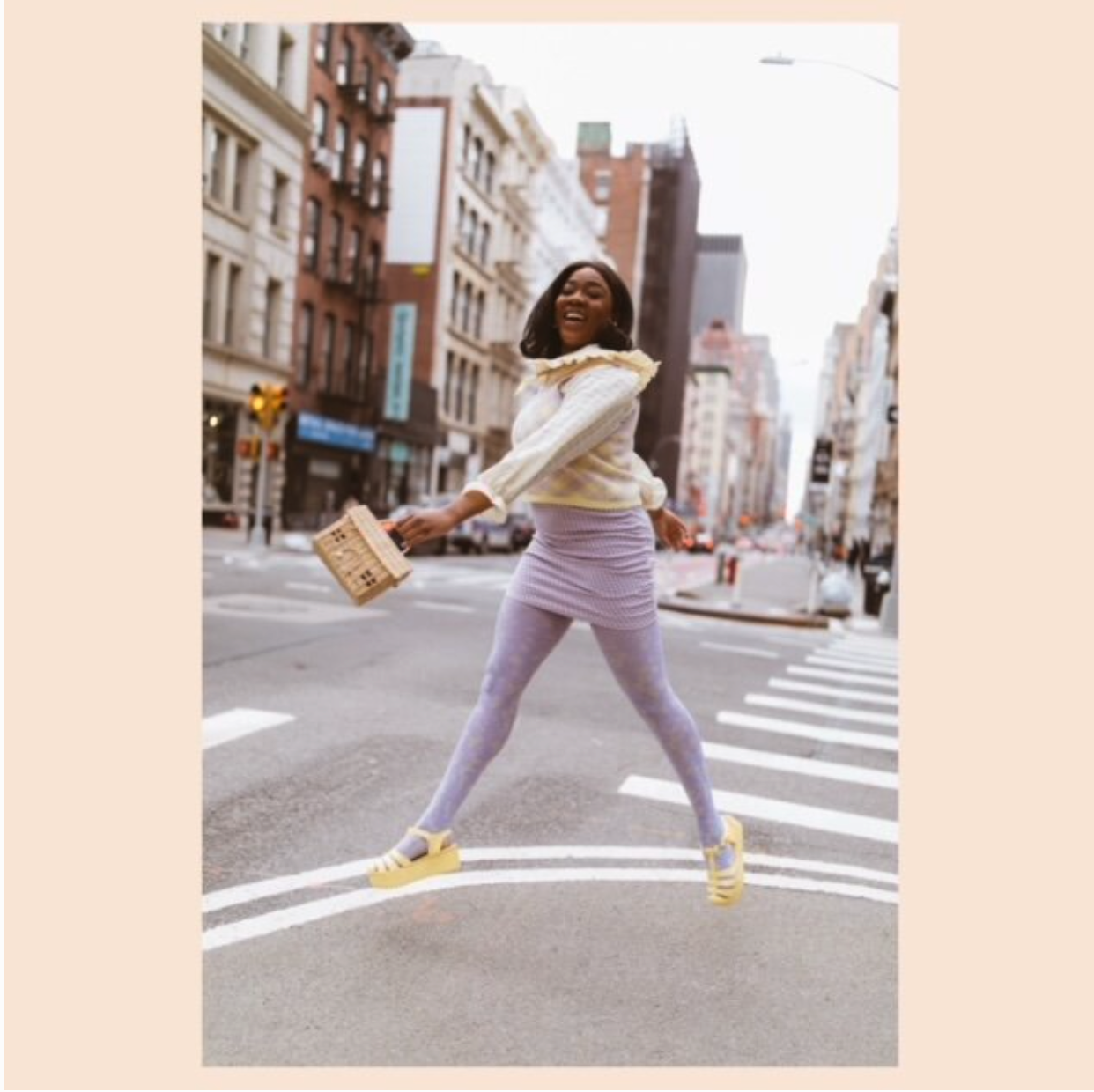“Reach Beyond Perceived Present Limitations”: Paralympic Gold Medalist Vanessa Low Gives Her Advice On Staying Passionate
1. Name:
Vanessa Low.
2. Where are you from? Where do you live now?
I was born and raised in northern Germany, moved to America when I was 23 and to Australia another 3 years later.
3. Profession?
Full-time athlete, training 9 times a week.
4. How did you manage to believe in yourself and your abilities despite losing both of your legs?
Sport has taught me to reach beyond perceived present limitations. It gave my second chance in life a direction and purpose. It taught me to fight and open up the boundaries in my mind that were limiting my physical abilities. No one believed running or long jumping would ever be an option for me with the great physical impairment I have, and even if it was, no one ever thought I would be competitive in a sport where I would have to compete against women that are all missing a leg less than me. While I crossed paths with many people that couldn’t help themselves but focus on my inabilities, I consciously made an effort to surround myself with those people that were on my side, those who heartedly believed in me the very first minute; there was no reason to convince them or prove myself, to justify my dreams, and for some reason that was all I ever needed to full-heartedly believe in myself. I learned to be passionate about my dreams and pour my full heart into it, no matter the outcome. And here I am proudly carrying a tattoo of my coach’s autograph on my arm representing my Paralympic Gold medal alongside the coordinates of places where I won world championship medals, reminding me of the journey I went on of walking my unique trail of life.
5. What is the most difficult part of being an amputee? How do you overcome this difficulty?
One major difficulty still is access to the appropriate technology, without which I can neither walk nor run. Prosthetic legs are still very expensive and often not covered by insurance, even in most western countries. I have come to realize that it is crucial to put yourself and your difficulties out there, asking for help when you need it, and not being scared to rely on other people. It turns out that there are many amazing people out in the world that are willing to help if they can.
6. What does adversity mean to you?
It wasn’t always that way, but my journey allowed me to change my mindset into one that sees changes and choices in the face of great adversity. I have learned when going through rough patches in life you get put in the position of pure choice. Choosing to give up and blame everyone else for an unsatisfying life or get in charge and take a chance of achieving the unimaginable. I have learned no matter the circumstances, we always have the decision to make life what we want it to be. It’s certainly not always our fault to be in the situation that we’re in. However, being at fault and being responsible are two different things, being at fault is about the past, while taking responsibility for your life and your happiness is happening at the very moment, it’s a daily decision.
7. What qualifies someone as a Paralympian?
The Paralympic Games is one of the biggest sporting events in the world and is a high-performance competition, which means that you need to be at a top-level in order to qualify and represent your country on this great stage. We have a classification system in which each athlete with a disability who aims to compete at the Paralympics, gets classified into a group of athletes with similar disabilities. There are then certain national and international set standards of times and distances you have to perform at smaller competitions to secure a spot in your respective national team. While the Paralympics started out as an event of participation we have now grown into a very competitive high-performance sport in which most athletes train fulltime.
8. What categories do you participate in the Paralympics?
I compete in the class T/F 61, which are athletes that a missing both of their legs above the knee, however, we compete in a combined class event which also includes the class T/F 63, which are athletes that are missing one leg above the knee.
9. How do you find happiness and fulfillment in your everyday life?
I believe it’s crucial to explore our personal values, wishes and goals in life in order to life a meaningful and fulfilling life. It’s important to fully understand what is truly important to us, what we want out of life, and consciously turn them into our priorities, align our every day decisions around them. Taking authorship over your life, the feeling of being in charge and in power is something truly powerful.
10. You’ve lived in three different continents. Which one was your favorite and why?
That’s the beauty, while I still cherish all the values, traditions and memories I got to collect growing up in Germany, I have also added many beautiful views and habits from both America and Australia. I have so many places around the world I call home and a family that reaches beyond my bloodline. I wish we would all realize that this little world is so interconnected, that borders originate from our minds, not a map. There is so much to be gained from a multicultural society.
11. What is your greatest achievement in life?
To win a gold medal in Rio was truly special in so many ways. When I picked up running after my accident, nobody truly believed it was ever an option for me with the great physical impairment that I had. I went through a lot of losses along the way, both on the track and in private, and made the life-changing decision to move to the USA to be a full-time athlete and surround myself with people that believed in my dream as much as I did. I had to live off my savings for several years, crowd-fund my running legs, not knowing where this path was going to take me.
This step wasn’t just life-changing for me as an athlete but changed my life in so many ways. I learned to believe in myself as a person and to trust my own decisions. Winning gold after all the sacrifices I had made was truly amazing and shows how important it is to be the author of your own book, allowing yourself to move beyond perceived limitations, stand up for what you believe in and reach for your full potential. I always say that my story has never been about my adversities and circumstances but the choices I made along the way. My gold medal in Rio is a symbol of that.
12. What’s next for you?
We are currently preparing for World Championship in Dubai later this year, which will be an important stepping stone towards Tokyo 2020. It has been a tough journey coming back from a few major injuries post-Rio 2016, but I’m starting to feel ready to show what I’ve been working on.
13. What is your motto in life?
This is your life, its fully up to you to make it what you want it to be.
Interview By Alison Hernon, Editor-In-Chief, PhotoBook Magazine.
Influencer With A Cause hosts influencers who are creating a positive theme such as body positivity, sustainability, and healthy eating.











